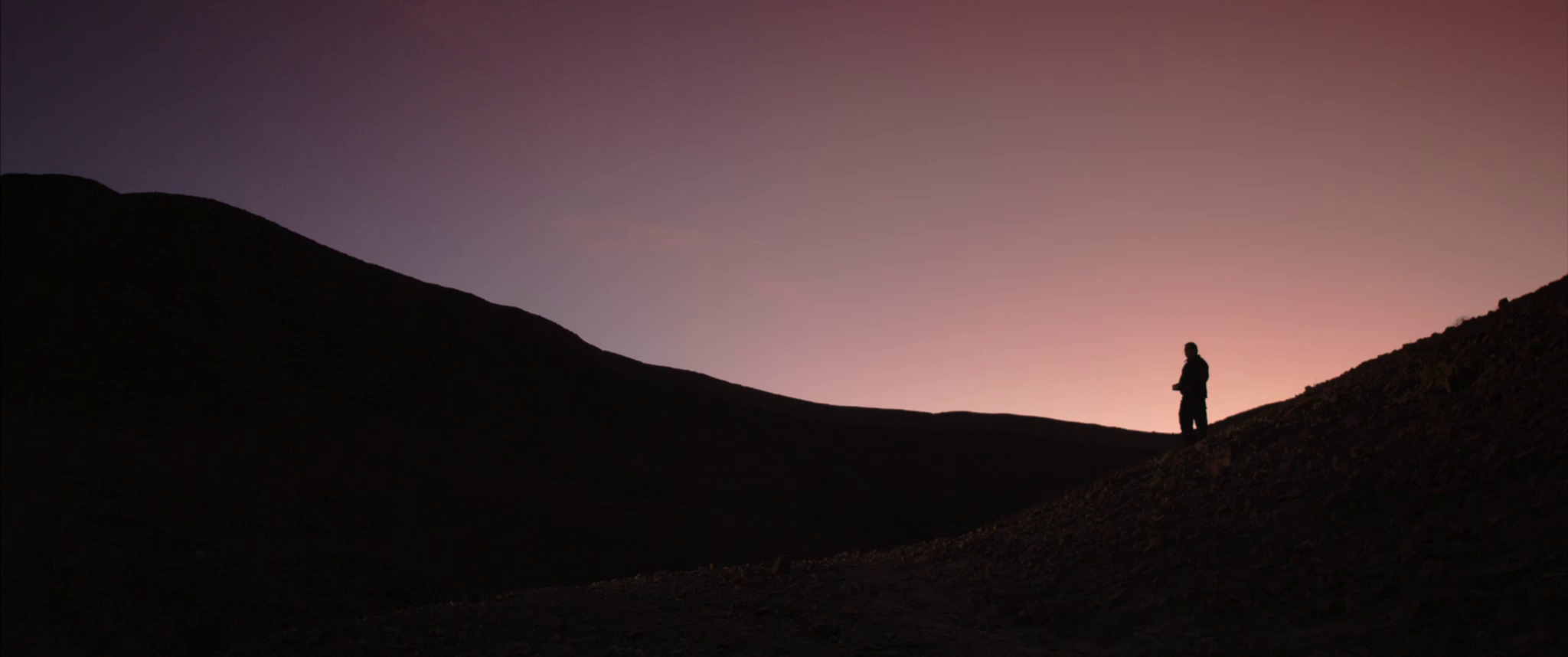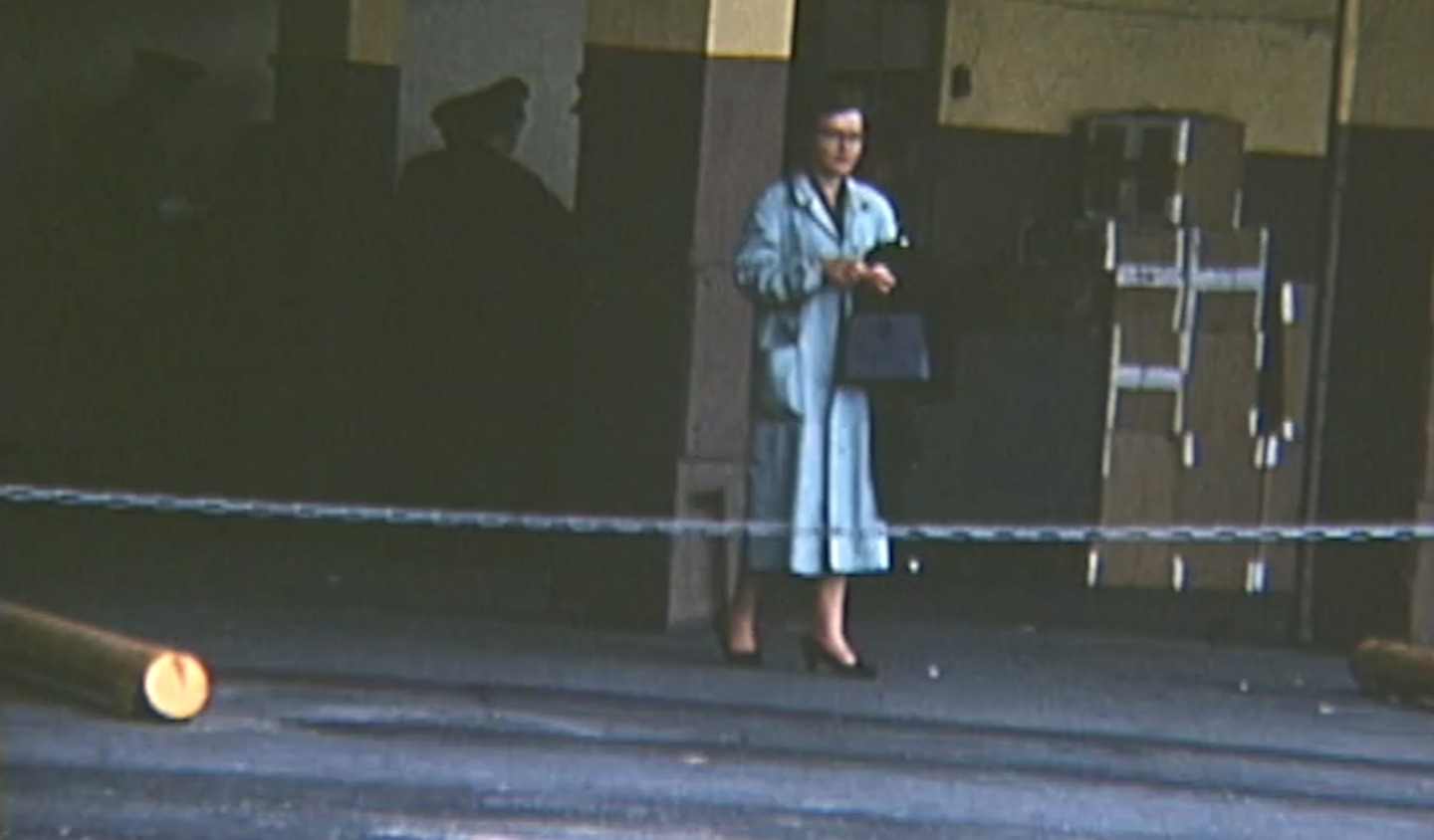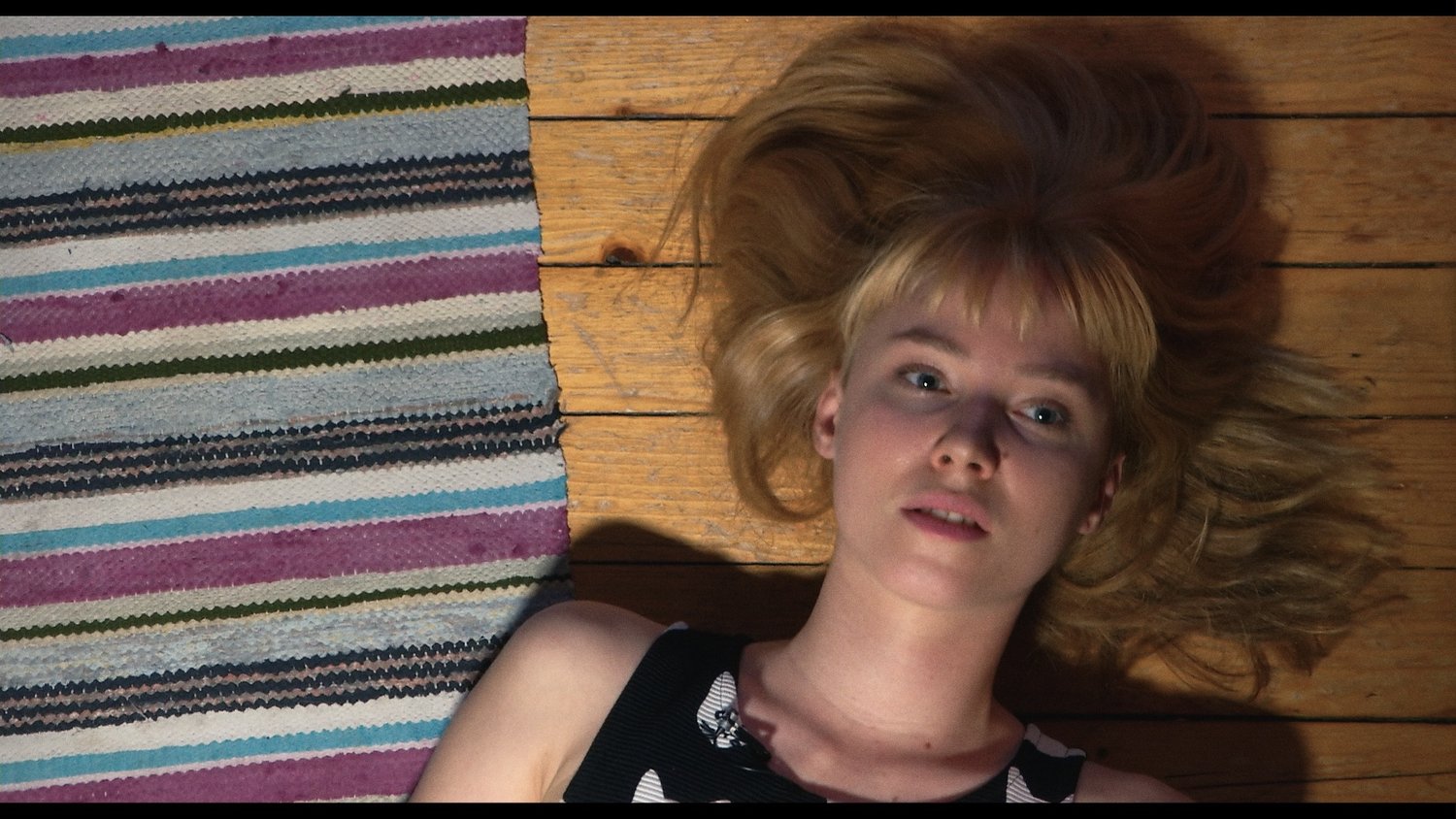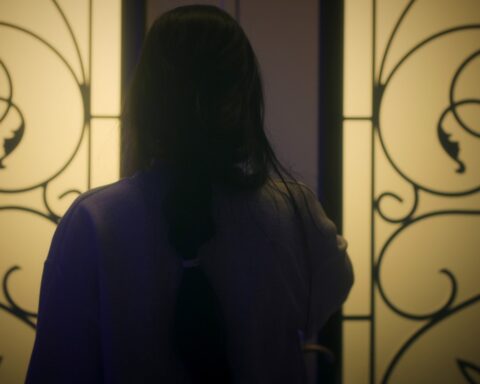Desert Space
(Chile, 70 min.)
Dir. Yerko Ravlic
Program: Made in Chile (International Premiere)
As embers from a campfire light up the ground in Chile’s Atacama Desert like fireflies in the night, Leonel Codoceo sits with his head firmly tilted toward the sky. A laser pointer in hand, he is not so much concerned with the constellations he might see but the lifeforms that travel through them. Believing that extraterrestrial life exists, Codoceo’s quest to make first contact is intimately observed in Yerko Ravlic’s documentary Desert Space.
Utilizing the vastness of the Atacama Desert, Ravlic wastes no time in establishing the sense of loneliness that encompasses his subject’s life. Working as a security guard for a mining company, Codoceo’s days are often spent in solitude. Divorced from his Sara who lives in Australia, though they are working on rekindling their once extinguished romantic flame when the film commences, home life consists of watching television and recording the sky for any unidentified flying objects (UFOs).
A fan of avionics since he was a child, his bookshelves stuffed with a massive collection of model airplanes and alien figurines from popular films, Codoceo became interested in UFOs when working as a photographer at the Sydney International Airport in Australia. Capturing images of planes landing, he noticed that white dots appeared in some of his photographs, which no one could explain. Taking advice from a friend, he reached out to a UFO Research Centre and received a crash course in the meaning of UFOs. It was from there that the seeds of his passion were planted.
Desert Space does not spend much time delving into Codoceo’s theories on extraterrestrials. Even the UFOlogist himself seems to be hesitant to go into details in a radio interview acknowledging people who believe in it despite the fact that proof is hard to obtain. Ravlic’s film is far more interested in the ways Codoceo’s’ desire for otherworldly contact has paved a way for real connections on Earth.
Although he spends much of his time alone in the desert at night, he has fostered a sense of community in a small group of like-minded amateur ufologists in the town of Copiapó where he resides. Whether they are mulling over the latest recorded footage or attending UFO related seminars, where Codoceo is clearly unimpressed with the speakers’ views that mankind’s ambition and fear of the other are what is hindering meaningful contact with aliens, this work fills a void in their lives.
It’s fascinating that Leito, Codoceo’s friend and fellow ufologist, had her first sighting of an alien spaceship when she was engulfed in sadness from a stormy separation. She recounts a second encounter, in which she spoke to two mirroring ships, with the same reverence as someone having a one-sided conversation with God. Though there are parallels between the rituals that Codoceo and other practice at the public UFO vigil he organizes, and those who seek meaning via a religious higher power, Desert Space never travels down the spiritual path it unintentionally stumbles upon. Instead, Ravlic’s meditative approach, his camera frequently lingering on Codoceo alone in the desert, forces the viewer to ponder the type of bonds that truly matter in life.
Early in the documentary the 58-year-old security guard admits to a friend on the phone that he is at a stage in his life where he needs a partner who is patient. It is no coincidence then that Codoceo is shown at his happiest when Sara re-enters his life. A thoughtful and effective film, Desert Space understands that the most profound connections are not found in the stars, but closer to home.
Desert Space premieres at Hot Docs on May 2.












